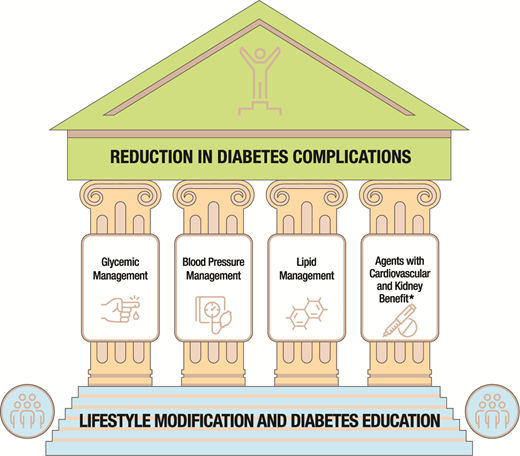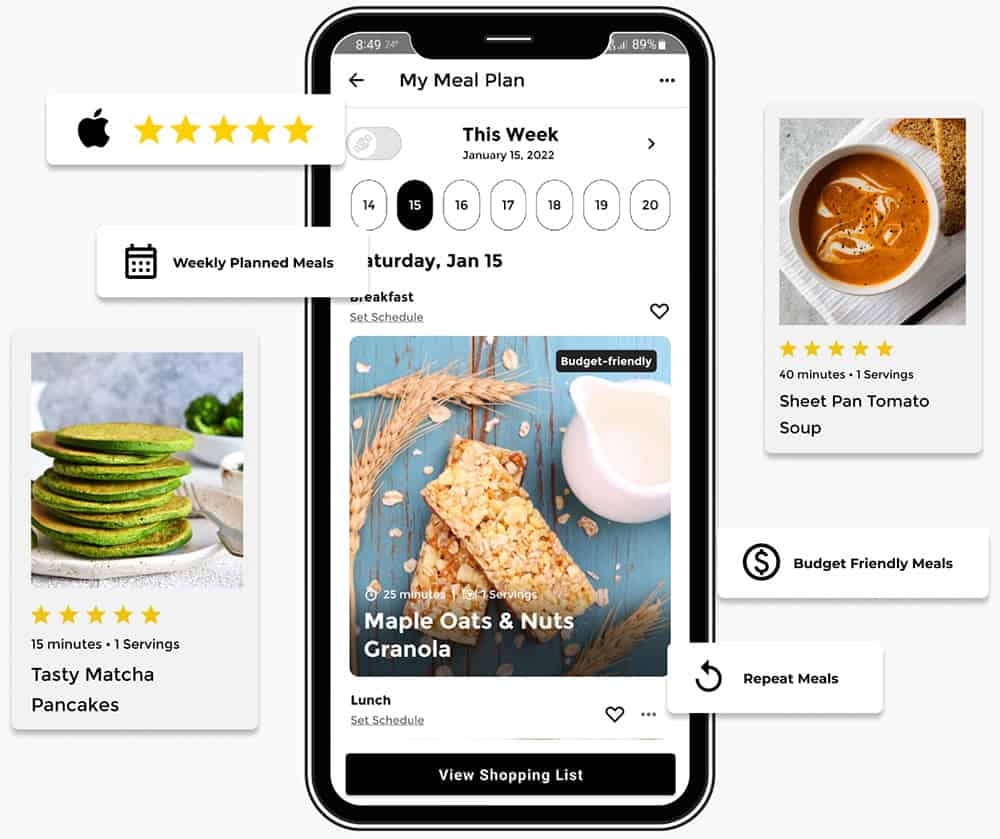The American Diabetes Association (ADA) released its 2022 screening guidelines for healthcare professionals to diagnose and manage diabetes and prediabetes based on the latest research evidence. Here’s a synopsis, a CliffsNotes version, of what you need to know. The 2022 guidelines emphasize four main categories: diabetes screening, management of complications and comorbidities, technology use, and individualized diabetes care.
For a quick refresher, diabetes is a chronic health condition that affects how your body transforms food into energy. When you have diabetes, your body cannot use the food you eat effectively to provide the body with the energy it needs to function properly. There are three types of diabetes: type 1, type 2, and gestational diabetes (diabetes while pregnant). More than 122 million Americans live with diabetes (37.3 million) or prediabetes (96 million).

100 years ago the diagnosis of diabetes would have been a death sentence. Today, since the discovery of insulin in the 1920s and advances in the diagnosis and treatment of diabetes, including the initial development and dispersion of the ADA Standards of Care over 30 years ago, one can live a long and fulfilling life with diabetes. New guidelines are released annually, however, as a “living” document, any important updates are published online (e.g., drug approvals, label changes) should the Professional Practice Committee (PPC) warrant immediate inclusion in the Standards of Care. In order to update the Standards of Care, the PPC conducts an extensive clinical diabetes literature search, supplemented with input from the ADA staff and the medical community at large.
Diabetes Screening
The ADA lowered the age to screen for prediabetes and type 2 diabetes to 35 years old, down from 45 years old. Additionally, a fasting glucose test is recommended for undiagnosed diabetes in all women who plan to become pregnant, especially those with risk factors. The recommendation to screen for gestational diabetes (a temporary form of diabetes that occurs during pregnancy) remains unchanged between 24 and 28 weeks.
Individualized Diabetes Care
The new guidelines recommend an individualized approach to care from the diagnosis of type 2 diabetes, formerly known as adult-onset diabetes, which is a form of diabetes that’s characterized by high blood sugar, insulin resistance, and relative lack of insulin. Unlike the 2021 recommendation, these guidelines are a bit more flexible, as they don’t insist that all people should be prescribed metformin. Metformin is a diabetes drug used in tandem with diet to lower high blood sugar levels in patients with type 2 diabetes. Instead, the 2022 guidelines recommend that the first medication to be prescribed should usually be metformin along with lifestyle changes, including diabetes self-management education and support programs, and medical nutritional therapy.
Management of Complications and Comorbidities
The ADA created a four-pronged approach for people to reduce their risk of developing common diabetes-related complications, including heart failure, chronic kidney disease (CKD), obesity, retinopathy, (damage to the retina of the eyes, causing vision impairment), and more. Think of it as an ancient Greek building with four columns, as the infographic below illustrates this four-pronged approach to help diabetics reduce their risk of developing these complications and comorbidities. The four columns are glucose management, blood pressure management, lipid management, and utilizing glucose-lowering medications that also have heart or kidney benefits, resting upon the building foundation of lifestyle modification (diabetes-friendly diet, exercise, stress management, etc.) and diabetes self-management education and support.

Technology Use
For diabetes technologies, the ADA’s recommendations underscore the importance of patients and caregivers choosing devices, receiving ongoing education and training about the devices, and evaluating their skills using the devices and data from them. The Standards of Care also emphasize the importance of using Continuous Glucose Monitoring devices (CGMs) (scanners that measure glucose levels) and Time in Range (TIR) (the amount of time you spend in the target blood glucose range) in adults. For children, it emphasizes CGM and Automated Insulin Delivery (AID) or Artificial Pancreas devices that consist of three parts: a CGM, an insulin pump, and an algorithm (virtual brain) connecting the device and diabetes technology use in hospital settings.
Before the COVID-19 pandemic, people with diabetes weren’t always permitted to use their CGMs, insulin pumps, and AID systems while hospitalized. However, the guidelines for using these devices have become more flexible to prevent the spread of COVID-19. That being said, diabetics and their loved ones need to continue to advocate for the use of these technologies in hospitals.

In my opinion, the Future of Diabetes Care includes a synergy of the standards of care, making life more seamless and ultimately less stressful. That is where a tool like DishQuo comes in to help improve and manage diet and lifestyle via technology. DishQuo is a scientifically supported meal planning app that optimizes health goals by using insulin science and technology to empower people to change their eating habits for the better. “The more people know, the better they do,” Dr. Robert Gabbay, chief scientific and medical officer of The American Diabetes Association (ADA).
Do you think you or someone you care about is at risk of developing Type 2 Diabetes? Empower yourself with knowledge. Take this 60-second Risk Test by the ADA. Save this article and subscribe to our blog for up-to-date information on healthy meal planning and more!
Sources:
- https://www.diabetes.org/
- https://www.niddk.nih.gov/health-information/professionals/diabetes-discoveries-practice/ada-2022-standards-of-medical-care-in-diabetes-update
- https://www.cdc.gov/diabetes/basics/index.html
- https://pubmed.ncbi.nlm.nih.gov/28990742/
- https://www.niddk.nih.gov/health-information/diabetes/overview/what-is-diabetes
- Introduction: Standards of Medical Care in Diabetes—2022
- https://diabetesjournals.org/care/issue/45/Supplement_1
- https://www.ncbi.nlm.nih.gov/pmc/articles/PMC3498849/







0 Comments